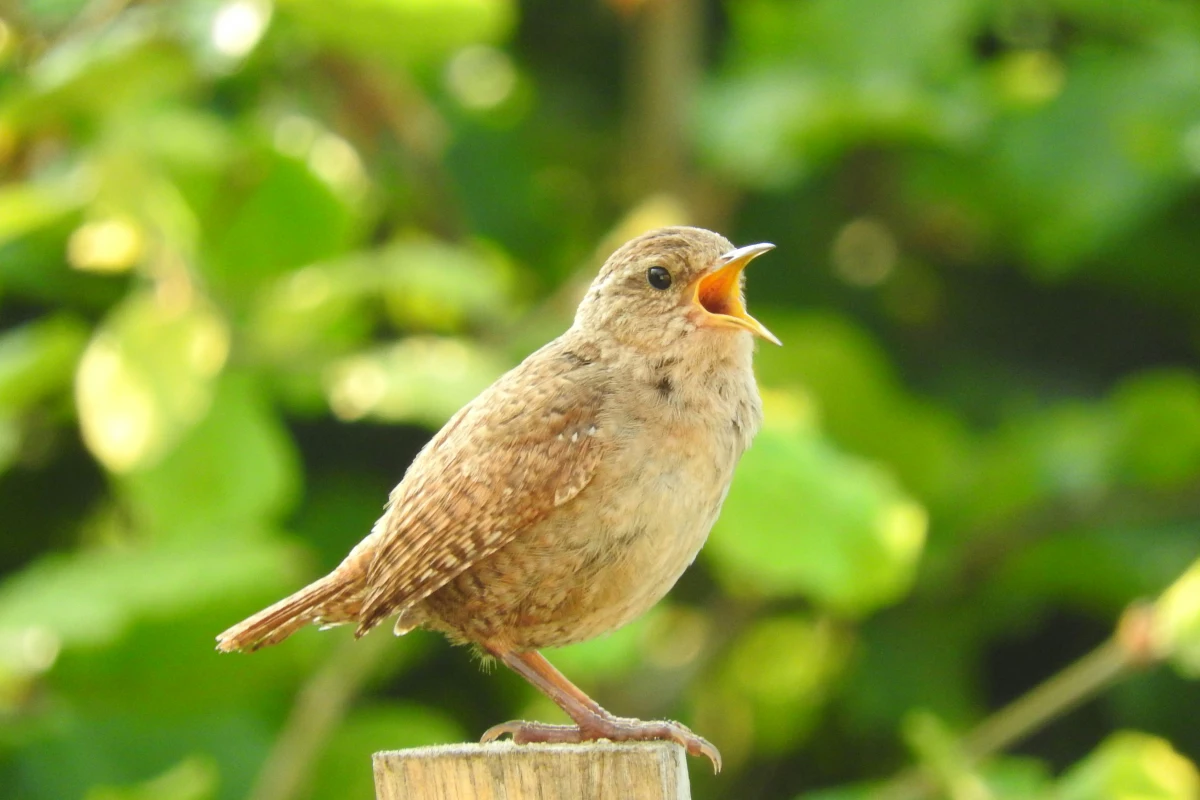Science
Birds Extend Daily Concerts by 50 Minutes Due to Light Pollution

Recent research indicates that birds are singing nearly an hour longer each day, a phenomenon linked to the increasing prevalence of light pollution. Scientists from Southern Illinois University and Oklahoma State University studied millions of hours of bird songs and discovered that urban light exposure significantly affects their singing patterns.
The team analyzed data from the BirdWeather project, a citizen science initiative where volunteers use bioacoustic devices to capture birdsong in their local environments. This project has amassed over 2.6 million instances of morning song initiation and evening cessation. The findings reveal that birds in areas with high levels of artificial light sing approximately 50 minutes longer than those in darker regions. Specifically, birds in the brightest environments start singing around 18 minutes earlier in the morning and continue for 32 minutes longer into the evening.
The study focused on 583 diurnal species, with the researchers noting that birds with larger eyes, open nests, and extensive ranges were most affected by light pollution. Their analysis shows that these changes in singing behavior are particularly pronounced during the breeding season, although the overall impact on bird health remains uncertain.
The authors of the study, published in the journal Science, explain that while prolonged activity may reduce rest time during a critical period, it may not necessarily lead to negative health consequences. They suggest that if birds can rest during the day or adapt their sleeping patterns, the extended singing duration could potentially enhance foraging opportunities or reproductive success.
Light pollution is becoming an increasingly pervasive issue, with estimates suggesting that 80% of life on Earth now resides beneath artificially illuminated skies. This phenomenon, known as skyglow, has far-reaching consequences, including the death of insects attracted to artificial lights, disruption of nocturnal migration patterns in birds, and interference with the reproductive habits of various species, such as sea turtles.
The researchers emphasize the need for increased awareness of how artificial light affects avian behavior. They propose that further global data accumulation could inspire international policy development, similar to efforts addressing climate change. “Restoring the darkness of our nights is a preeminent challenge for 21st-century conservation and demands global cooperation,” the researchers conclude.
This study sheds light on a critical environmental issue and underscores the importance of addressing light pollution to protect wildlife and restore natural ecosystems.
-

 Technology5 months ago
Technology5 months agoDiscover the Top 10 Calorie Counting Apps of 2025
-

 Health3 months ago
Health3 months agoBella Hadid Shares Health Update After Treatment for Lyme Disease
-

 Health3 months ago
Health3 months agoErin Bates Shares Recovery Update Following Sepsis Complications
-

 Technology4 months ago
Technology4 months agoDiscover How to Reverse Image Search Using ChatGPT Effortlessly
-

 Technology1 month ago
Technology1 month agoDiscover 2025’s Top GPUs for Exceptional 4K Gaming Performance
-

 Technology3 months ago
Technology3 months agoElectric Moto Influencer Surronster Arrested in Tijuana
-

 Technology5 months ago
Technology5 months agoMeta Initiates $60B AI Data Center Expansion, Starting in Ohio
-

 Technology5 months ago
Technology5 months agoRecovering a Suspended TikTok Account: A Step-by-Step Guide
-

 Health5 months ago
Health5 months agoTested: Rab Firewall Mountain Jacket Survives Harsh Conditions
-

 Lifestyle5 months ago
Lifestyle5 months agoBelton Family Reunites After Daughter Survives Hill Country Floods
-

 Health3 months ago
Health3 months agoAnalysts Project Stronger Growth for Apple’s iPhone 17 Lineup
-

 Technology5 days ago
Technology5 days agoOpenAI to Implement Age Verification for ChatGPT by December 2025











